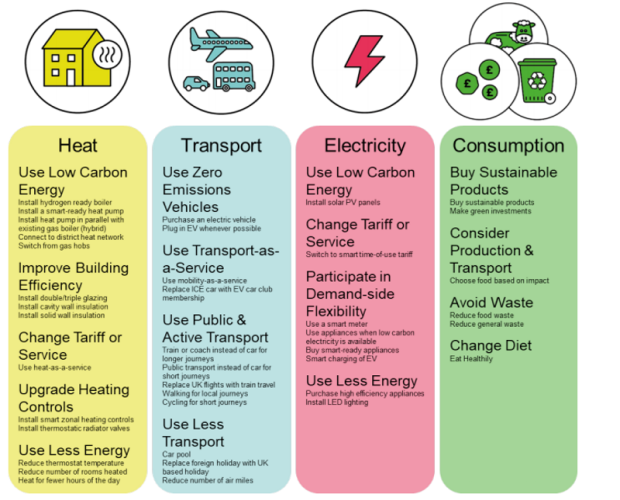T: 01822 851370 E: [email protected]
rural environment
The Guardian reports on a new fund launched by Ofgem which hopes to help homes and businesses to go green The £450m fund aimed at innovative projects that will help the country meet its net zero climate targets. Ofgem...
The Guardian reports the rewilding 5 per cent of England could create nearly 20,000 jobs in rural communities and increase employment by 50 per cent compared with intensive farming, according to new data from charity, Rewilding Britain The projection...
The Watton and Swaffham Times reports that prospering rural communities, remoter communities and ageing rural communities are among the worst 10 per cent in England for their total emissions grade The Centre for Research into Energy Demand Solutions produced...
The Greenhouse Gas Accounting Tool has been developed by Local Partnerships, working with the LGA, to provide a straightforward and consistent approach for councils seeking to calculate their own carbon baseline While currently local authority reporting on emissions is...
The Yorkshire Times reports that the Government has announced a programme to support farmers across the country to reduce water and air pollution from their land In collaboration with Natural England and the Environment Agency, DEFRA will provide free...
The BBC covers news that the parliamentary Transport for Norwich joint committee is planning a public consultation to introduce a congestion charge and other measures to curb carbon emissions in Norwich While councillors from across the political divide welcomed...
DEFRA and BEIS recently commissioned a report to better understand the possible impact of different societal and behavioural changes in achieving the 2050 emission target The report looks at 130 behaviours across four sectors (heat, transport, electricity and consumption)...
The Campaign for National Parks has recently published their 'National Parks and the Climate Emergency' report They believe that our National Parks have a key role to play in tackling the climate emergency, but only if they are fully...
The Telegraph reports that the company behind the "Boris bus" is using French batteries to bring environmentally friendly services to rural routes, after previously pledging to champion British manufacturing Wrightbus has unveiled its first electric-powered vehicle with a 200-mile...
The company developing energy storage technology to enable super-fast charging of electric vehicles, has secured a £545,000 grant from the Office for Zero Emission Vehicles, in partnership with Innovate UK, reports Renewable Energy Magazine The grant will support Levistor’s...
NEWSLETTER
Sign up to receive all our latest news and updates.
HOT TOPICS
Amid reduced public spending, fair resource allocation across regions is crucial. Despite a population larger than Greater London, rural areas receive significantly less funding for essential services, even though delivering these services in rural areas is more expensive.
Economic growth is widely acknowledged as essential for national wealth and prosperity and is a priority for political parties. Rural economies, employing millions and home to a higher proportion of small businesses, have potential for growth if barriers are removed.
Rural residents face distinct healthcare challenges, including limited access to transport, longer distances to medical facilities, an aging demographic, housing inadequacies, digital connectivity gaps, and difficulties recruiting health and care workers.
Rural communities are grappling with a severe affordable housing crisis, marked by high house prices, a lack of affordable housing, elevated living costs, and lower incomes, threatening their sustainability and vitality.
Transport is vital for the quality of life and economic health of rural areas, yet it faces challenges such as infrequent public bus services and less Government funding compared to urban regions.
Rural areas, encompassing a substantial portion of England's population and land, play a pivotal role in combating climate change and achieving the net zero target.
In an increasingly digital world, the lack of robust digital infrastructure in rural areas severely limits access to crucial services and stifles economic growth.
A future-focused vision for rural communities involves not just building the right homes in the right places but also ensuring thriving, sustainable communities.
SIGN UP TO OUR NEWSLETTER
Sign up to our newsletter to receive all the latest news and updates.











